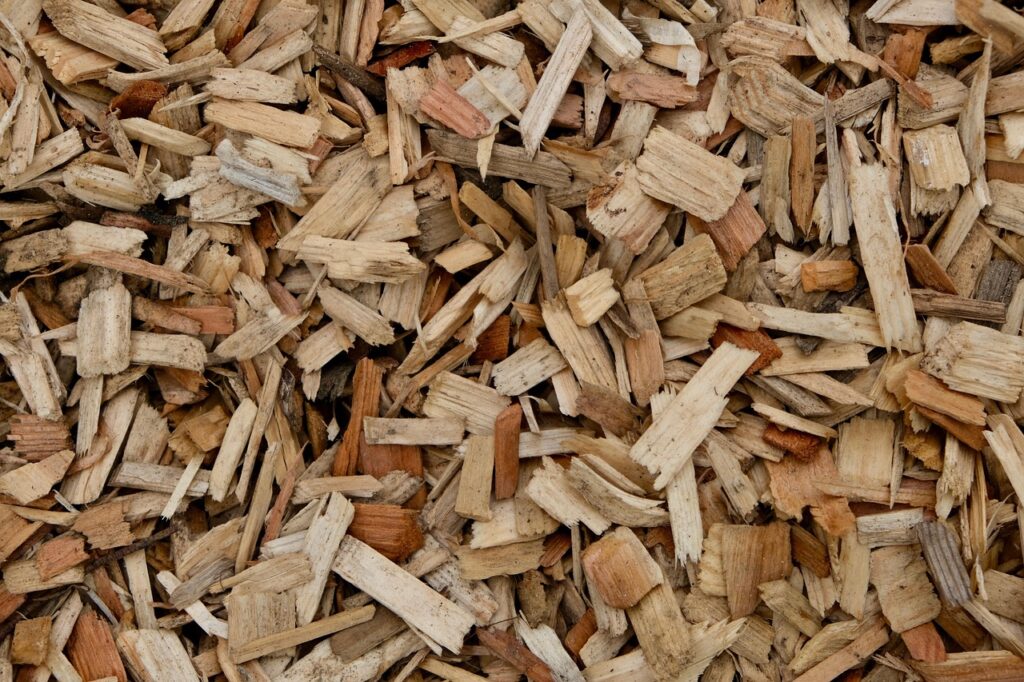Mulch is a popular landscaping material used to retain moisture, suppress weeds, and enhance curb appeal. However, under certain conditions, mulch can pose a surprising fire hazard. Mulch combustion occurs when mulch heats up to the point of self-ignition or catches fire from an external source, such as a cigarette or an unattended flame. Once ignited, mulch fires can spread quickly, especially when dry and windy conditions are present. To keep your property safe, it’s important to understand what causes mulch combustion and how to prevent it.
What Causes Mulch Combustion?
Mulch combustion can occur in two primary ways:
Spontaneous combustion: This happens when organic mulch, such as wood chips or bark, begins to decompose. As the mulch breaks down, it generates heat. If the mulch is piled too deeply (typically over 6 inches), the heat can build up to the point of self-ignition.
External ignition sources: Mulch is highly flammable when dry. Carelessly discarded cigarettes, matches, or even embers from a nearby fire pit or grill can easily ignite mulch.
Once a mulch fire starts, it can smolder beneath the surface, making it difficult to detect until it spreads to nearby plants, structures, or even your home.
2 Ways to Prevent Mulch Combustion
- Apply Mulch in Thin Layers and Keep It Moist
One of the simplest ways to prevent mulch combustion is by applying it in thinner layers and keeping it well-hydrated. Thick mulch piles can trap heat, allowing it to build up and potentially ignite.
Tips for safe mulch application:
Limit mulch depth: Keep mulch layers between 2 and 4 inches. Thicker layers increase the risk of heat buildup, while thinner layers reduce the chances of spontaneous combustion.
Water regularly: During hot and dry weather, mulch can dry out quickly, making it more flammable. Watering the mulch periodically helps keep it moist and reduces its flammability.
Create firebreaks: Leave space between mulch beds and flammable structures, such as wooden fences or your home’s siding. This creates a buffer zone and reduces the risk of fire spreading.
- Choose Fire-Resistant Mulch and Practice Safe Landscaping
Not all mulch types carry the same fire risk. Inorganic mulch and fire-resistant organic mulch are far less likely to ignite compared to traditional wood-based mulch.
Fire-resistant mulch options:
Gravel or stone: These inorganic materials don’t combust and are ideal for areas near your home or around fire pits.
Composted mulch: Well-composted mulch has already undergone decomposition, making it less prone to spontaneous combustion.
Rubber mulch: While not organic, rubber mulch is less flammable and can be a safer choice for playgrounds and landscaping close to structures.
Safe landscaping practices:
Avoid smoking near mulch beds: Careless disposal of cigarettes is a common cause of mulch fires. Always use proper receptacles for cigarette butts.
Keep mulch away from heat sources: Maintain a safe distance between mulch beds and outdoor grills, fire pits, or electrical equipment.
Final Thoughts
Mulch combustion may seem unlikely, but under the right conditions, it can happen—and it can be dangerous. By applying mulch in thin layers, keeping it moist, and opting for fire-resistant materials, you can greatly reduce the risk of mulch fires. Taking these preventative measures not only protects your property but also keeps your landscaping looking beautiful and safe.

